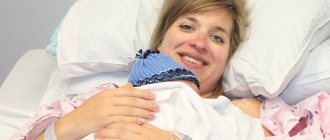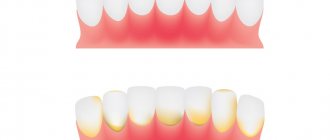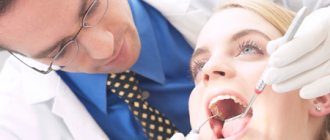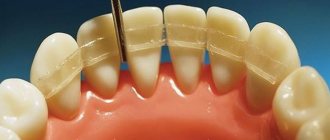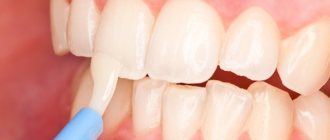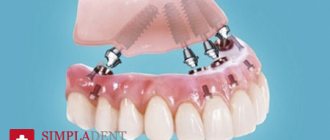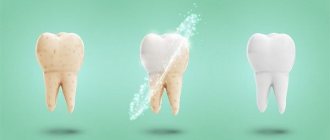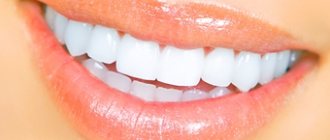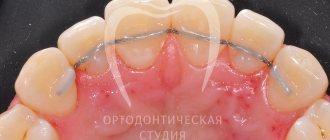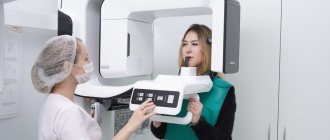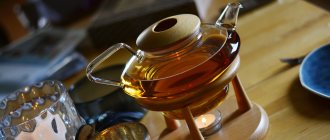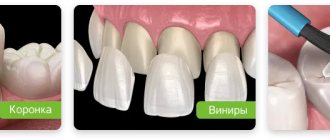In this situation, people prefer to isolate themselves from the crowd by refusing a sip of wine or beer. Others forget about taking medications for the evening, thinking that one evening does not solve anything. If you miss at least one dose, the entire result of treatment comes to naught, since the pathogen receives fertile soil for development. To defeat the bacteria, you will have to use stronger combinations, which harms the body, weakens it, making it vulnerable.
During antibacterial treatment, you are allowed to drink a glass of opinion. According to the results of laboratory studies, alcohol does not affect the use of antibiotic compounds. You should not expect any unpleasant side effects. Maintain boundaries without overusing them. Mixing treatment with alcohol is associated with the following consequences:
- Development of an allergic reaction to components containing alcohol.
- Redness of the skin, rash, increased sweating. A feeling of heat and temperature appears.
- Intoxication of the whole body. Symptoms include vomiting, convulsions, severe headache and dizziness.
- Liver dysfunction. Metabolism slows down. Recycling products cease to be excreted. The exchange is slow and atypical. This inhibits the work and function of systems, accumulates toxins and products, which affects well-being.
- Blood pressure surges.
Everyone's reaction is different based on the combination. The mechanism of action is different, so it is difficult to give a definite answer. Call a doctor at home for a consultation. Please call our 24-hour service contact number. The operator will answer, ask questions and dispatch a team that will arrive within thirty minutes within the city. After examining the patient, the doctor will describe the picture, prescribe treatment, and help get out of intoxication. Some restrictions are imposed on the patient’s usual life and diet in order to get rid of unfavorable manifestations and return to the working rhythm.
Botox: recommendations and contraindications after the procedure
When a patient decides to undergo rejuvenation using botulinum therapy and goes to a cosmetologist’s office, it is very important that the specialist warns him in detail about the restrictions after Botox and provides a full list of recommendations. Not only the effectiveness, but also the safety of the technique depends on how detailed this consultation is. At the same time, such a scrupulous approach should not frighten a person, because we are talking about the simplest precautions after Botox injections, the implementation of which does not require significant effort.
First of all, it is worth saying that Botox injections can be classified as “weekend cosmetic procedures” that do not require a long recovery period from the patient and do not limit performance. The duration of the procedure does not exceed half an hour, and recovery is not accompanied by severe pain or discomfort. At the same time, the minimal trauma of the technique is achieved by using local anesthesia and the use of ultra-thin cannula needles that do not leave marks on the skin.
So, you leave the cosmetologist’s office already young and beautiful and all that remains is to find out what not to do after Botox injections.
Can I drink alcohol after Botox injections?
Botox and alcohol are a hot topic and widely discussed on the Internet. Official medicine insists on the incompatibility of these substances, while all-knowing Internet gurus claim that there is nothing wrong with such a combination and they have “done this a hundred times.” So, who to believe and how much alcohol should you not drink after Botox?
You should definitely trust the specialists who list limiting the intake of alcoholic beverages and alcohol-containing medications as one of the main recommendations after Botox injections. Such a strict prohibition is associated with the physiological effect of alcohol, which promotes vasodilation and can lead to accelerated removal of botulinum toxin from the patient’s body or, which is very unpleasant, cause improper distribution of the drug in the muscle. As a result of drinking alcohol after Botox, instead of the expected smooth and youthful skin, you can get a bumpy and visually unaesthetic skin surface.
When answering the question of how much you should not drink after Botox, most experts determine a period of at least two weeks during which the final effect of the procedure is formed. At the same time, some “lucky” ones claim that they did not observe complications, even without maintaining such a non-alcoholic period. This may be due to the individual characteristics of the patient’s body, so you should not conduct such experiments and risk your own health and beauty.
How do alcoholic drinks affect the body?
The basis of any such drink is ethanol. The difference lies in its content. For example, there is 10 times more of it in vodka than in beer. Drinking alcohol in large quantities has a negative effect on the body. No more than a tenth of the volume of ingested ethanol is excreted in the urine and then, the remaining 90% is broken down and absorbed.
Ethanol harms cell membrane lipids. Their viscosity decreases, and the receptors become insufficiently sensitive to the necessary mediators. To prevent this effect, the stomach tries to neutralize ethanol. To do this, the mucous membrane produces much more mucus than in normal digestive mode. On the one hand, this slows down the absorption of the unwanted substance, on the other hand, it causes irritation of the mucous membrane and inhibits the absorption of nutrients and other drugs.
A complex of pathologies called alcoholic liver disease cannot be excluded. When ethanol is abused, cellular degeneration develops, interfering with the normal functioning of the organ.
Why can't Botox and antibiotics be combined?
A very important aspect of preparing for botulinum therapy is the need to complete in advance (preferably at least 1 month) all medications that may affect the effect of Botox on muscle tissue. Antibiotics are also among these medications. In particular, you should limit the use of the following medications:
- tetracycline antibiotics - this group of drugs significantly reduces the effectiveness of botulinum toxin, which will not allow obtaining the desired aesthetic result;
- aminoglycoside antibiotics - these drugs, on the contrary, potentiate the effect of the drug, which can lead to such unexpected consequences of the procedure as drooping eyelids and changes in facial contour;
- erythromycin, lincomycin, macrolides, polymyxin - these antibiotics can disrupt the distribution of Botox in tissues, which sometimes causes unpredictable visual consequences;
- muscle relaxants - all medicinal substances that can affect muscle tissue are strictly contraindicated for at least two weeks after Botox injections due to the likely increase in effects;
- aspirin and all anticoagulants - agents that can reduce blood clotting significantly increase the likelihood of bruising and hematomas at the injection sites of Botox.
You should limit yourself from taking antibiotics after Botox injections for 10-14 days. If there is an urgent need for antibiotic therapy, you should definitely inform your doctor about your recent procedure, in order to select the safest combination of drugs.
Is it possible to drink alcohol with antibiotics?
Almost all instructions for the use of antibacterial drugs contain a note regarding the prohibition of drinking alcohol during treatment. However, actual side effects are rarely reported. Excessive consumption of alcoholic beverages leads to a decrease in the protective functions of the immune system. The patient's body stops fighting infections. Even “approved” antibiotics become ineffective.
Excessive alcohol consumption can also impair the absorption of antibacterial drugs taken orally. During the metabolism of ethyl alcohol, acetaldehyde is produced. The component causes nausea and headaches (popularly called a “hangover”). People who take antibiotics in tablet form also experience digestive side effects. Drinking alcohol during antibiotic therapy can lead to exacerbation of peptic ulcer disease and a general deterioration in concentration and coordination.
Are cosmetic procedures after Botox safe?
Many patients are interested in how much the use of Botox limits cosmetic skin care and when they can return to their usual beauty procedures. In addition, we should separately highlight some procedures that are perfectly combined with botulinum therapy, enhancing the rejuvenation effect.
- Is it possible to do a facial massage after Botox? Facial massage after Botox can cause uneven distribution of the drug in the muscles, so such effects should be avoided for 24 hours after Botox administration. It is advisable not to touch your face or use cosmetics during this period in order to protect yourself as much as possible from the development of side effects;
- Is it possible to do biorevitalization after Botox? Injection of hyaluronic acid into subcutaneous structures, which in cosmetology is called biorevitalization, helps moisturize and rejuvenate the skin. Moreover, this procedure is perfectly compatible with Botox injections and can be performed even on the same day;
- Is it possible to peel after Botox? As for peeling effects, it is still better to refrain from combining it with Botox for 24 hours. This is especially true for aggressive types of peeling, such as microdermabrasion.
How do antibiotics affect the body?
It is not without reason that drugs in this group are taken only as prescribed by a doctor. The principle of their action is to destroy or suppress the growth of bacteria, all of them (both beneficial and harmful).
They attack:
• Cellular synthesis apparatus. This prevents bacteria from building protective peptide walls.
• DNA gyrase. This prevents the replication of genetic information and inhibits the proliferation of pathogenic microorganisms.
• Protein biosynthesis apparatus (ribosomes) - without it, bacteria die.
Modern pharmacology is trying to make antibiotics more selective. But their use leads to an imbalance of microflora. Beneficial bacteria, which form a kind of shield in the intestines, also suffer. Therefore, only a specialist can compare the effect of treatment with possible losses. Also, a number of antibacterial drugs have the property of hepatotoxicity. They damage liver cells, causing cholestasis (impaired bile flow) or necrosis (tissue death).
Side effects after Botox
Side effects of Botox are extremely rare and are most often the result of an incorrectly performed drug administration procedure or the result of non-compliance with post-procedure recommendations. The composition of Botox itself does not have any significant toxicity to the body and is not capable of causing complications or unpleasant consequences.
The most common side effects of Botox include:
- Swelling after Botox . Many patients are interested in what to do if Botox causes swelling under the eyes or in other facial areas. This complication occurs in approximately 4% of patients and, depending on the severity and location, may resolve on its own or require additional correction. The most unpleasant option is eye swelling after Botox, which is recommended to be eliminated with medication and physiotherapy;
- Headache . About 2% of patients experience headaches after Botox, which is corrected by taking mild analgesics;
- Eyelid ptosis after Botox . Another rare complication of the procedure is ptosis (drooping) of the upper eyelid, which occurs in no more than 1% of patients. Treatment of ptosis of the upper eyelid after Botox is usually not carried out, since after 2-3 months, after the drug is removed from the body, muscle tone is restored on its own. The same rule applies to those cases where the eyebrows have drooped after Botox;
- Hematomas . They develop after injections in 6% of patients and go away on their own within 3-4 days.
A guarantee of the absence of side effects and complications after Botox will be the qualifications of the cosmetologist and strict adherence to all post-procedure recommendations. The NEOMED clinic is ready to provide cosmetology services using safe drugs and under the supervision of experienced professional cosmetologists.
Find out the cost of the Botox procedure
What medications are strictly prohibited from taking alcohol?
There are several specific antibiotics that directly interact with ethyl alcohol. Drinking any amount of alcohol is strictly prohibited during treatment with drugs from the list.
- Metronidazole: An antimicrobial agent most often prescribed to treat dental and vaginal infections. Metronidazole is added to external products intended for cleaning trophic ulcers and treating deep bedsores.
- Tinidazole: An antibiotic designed to fight simple infections. Included in drugs aimed at combating Helicobacter pylori.
- Cycloserine: prescribed for the treatment of tuberculosis, lung infections. In combination with ethyl alcohol it causes convulsions.
- Linezolid: Used to treat skin infections and is effective against bacteria that are resistant to other types of antibiotics.
Alcohol in combination with the above drugs provokes a sharp increase in blood pressure, headaches, and drowsiness. It must be remembered that side effects occur even if the antibacterial agent is used in the format of an external cream or gel.
